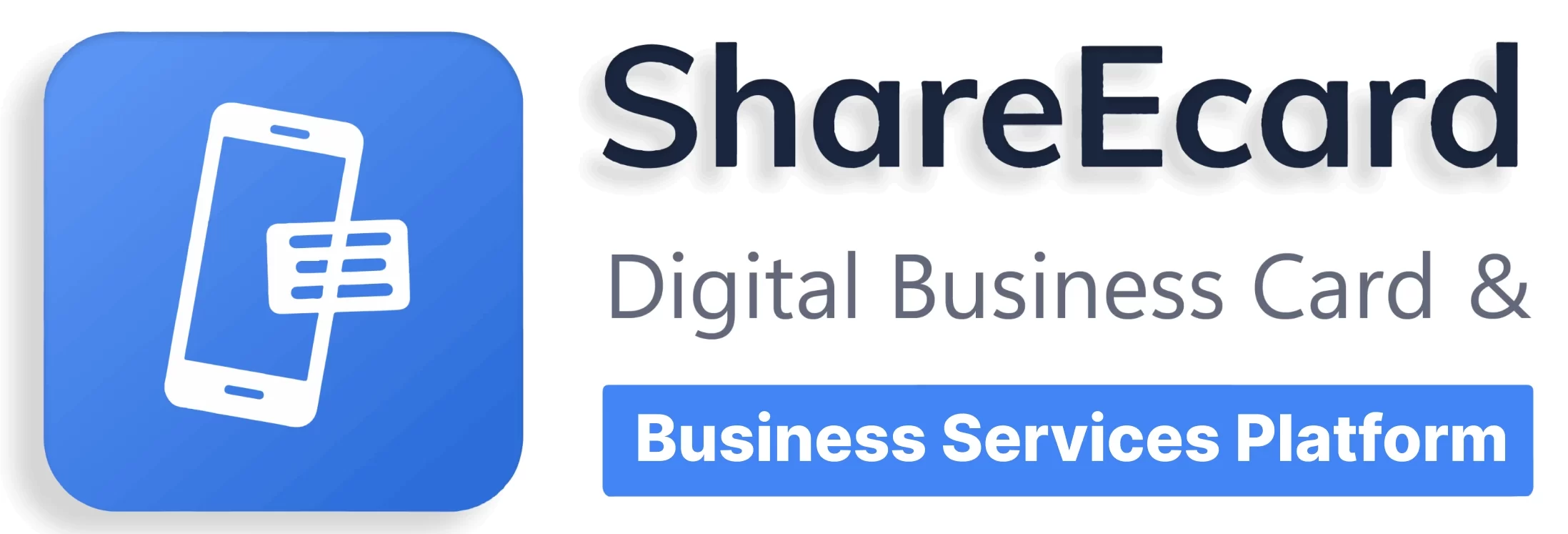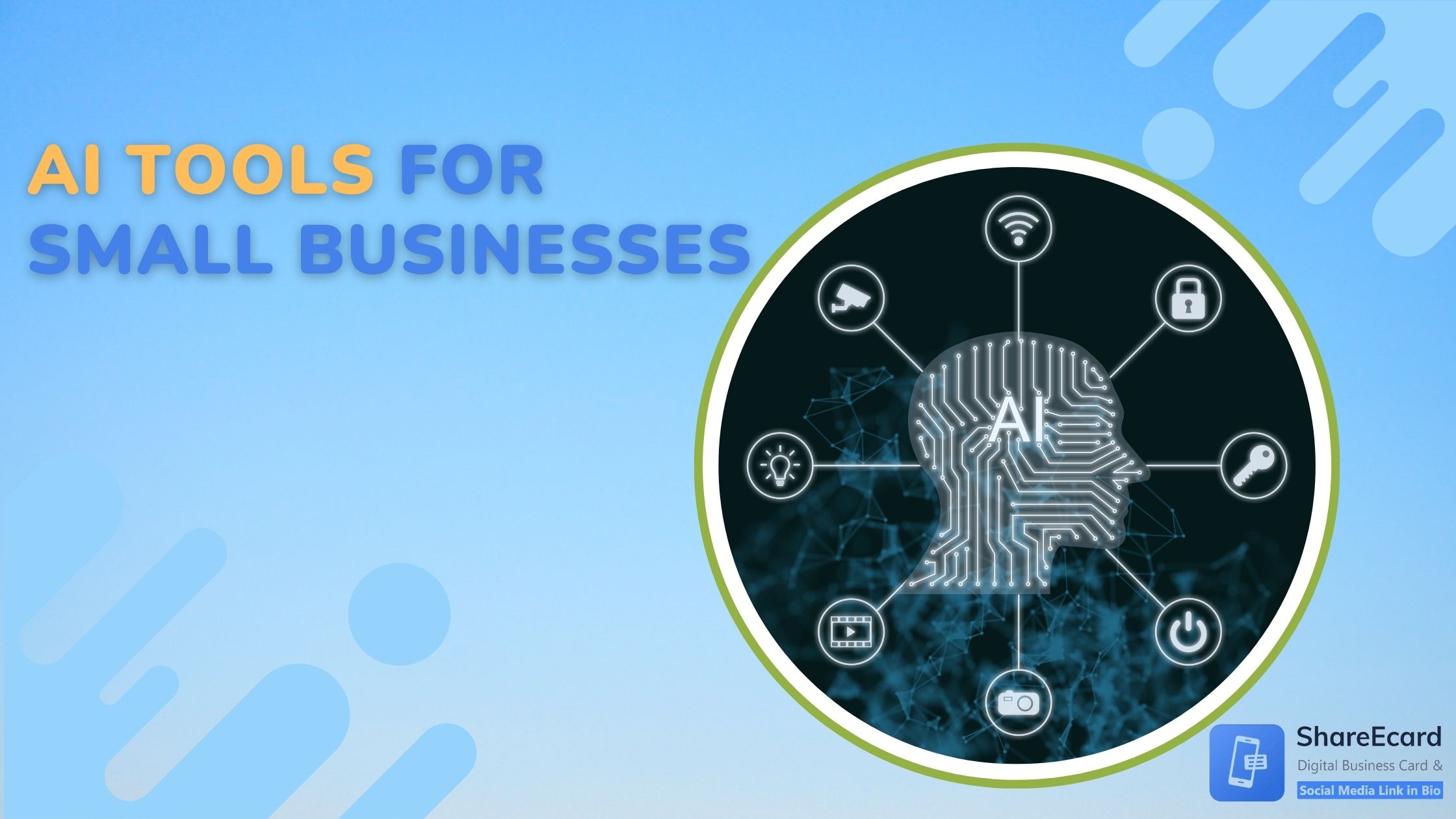In the rapidly evolving world of marketing, Artificial Intelligence (AI) has emerged as a groundbreaking force, transforming the landscape and setting new standards of efficiency and personalization. Small businesses, in particular, stand at a crossroads, with AI offering a pathway to remain competitive, agile, and responsive to changing consumer needs. Integrating AI into marketing strategies and operations is no longer a luxury but a necessity, leveling the playing field and enabling small enterprises to punch above their weight.
As the digital ecosystem becomes increasingly saturated, the ability to leverage AI tools is paramount. These tools offer precision, automate mundane tasks, and glean insights from data that would otherwise be unattainable. The blog sheds light on the best tools available that can catalyze growth and drive efficiency. Read on!
1. Canva (Design and Content Creation)
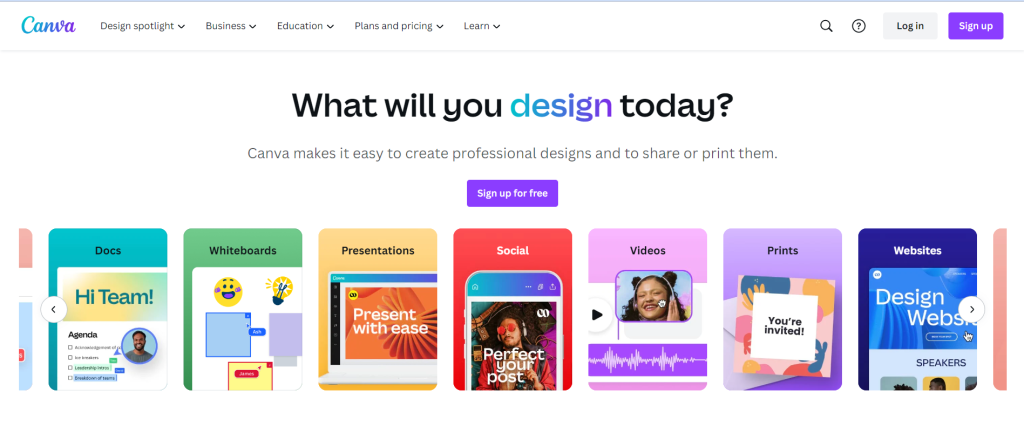
Canva is an intuitive design platform that harnesses AI to empower users with no formal design training to create stunning visuals. It offers a plethora of templates, images, and design elements, along with a drag-and-drop interface. The AI-driven features include a color palette generator, logo maker, and resizing tool that adapts designs to various formats.
- USPs: The platform’s accessibility and user-friendly interface stand out, coupled with a rich library of resources. The AI-driven design suggestions and customization options ensure a professional touch, even for novices.
- Pricing: Canva offers a free version with access to basic features. The Pro version, geared towards small businesses, is priced at $12.99 per user/month, unlocking advanced features and assets.
- How It Helps: Canva enables small businesses to create high-quality marketing materials, social media posts, and branded content in-house, reducing reliance on external design agencies and cutting costs.
2. ChatGPT (AI-powered chatbot and Content Generation)

ChatGPT, developed by OpenAI, is a sophisticated language model that can engage in conversational interactions and generate human-like text based on the prompts it receives. It can be integrated into websites as a customer service chatbot, utilized to generate content, answer queries, and even draft emails or other written materials.
- USPs: ChatGPT stands out due to its advanced natural language processing capabilities, enabling it to understand and generate text in a conversational manner. This makes interactions with the chatbot feel more natural and user-friendly. Additionally, its versatility in content generation makes it a valuable asset for a variety of applications.
- Pricing: While OpenAI offers free access to ChatGPT, businesses looking for more advanced features, faster response times, and priority access to new features can opt for ChatGPT Plus, priced at $20/month.
- How It Helps: Small businesses can leverage ChatGPT to enhance their customer support, ensuring 24/7 availability and instant responses to customer queries. This not only improves customer satisfaction but also frees up human resources for more complex tasks. Additionally, its content generation capabilities can aid in creating blog posts, marketing copy, and other written content, saving time and resources.
3. Hootsuite (Social Media Management)
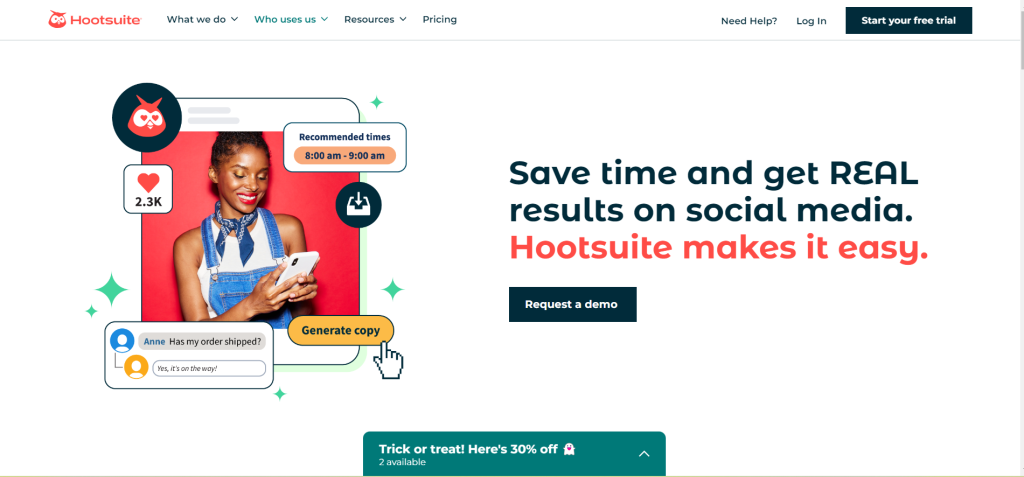
Hootsuite is a comprehensive social media management platform that leverages AI for content curation, scheduling, and performance analytics. It supports multiple social networks, providing a centralized dashboard for all social media activities.
- USPs: Hootsuite’s strength lies in its ability to streamline social media management, saving time and ensuring consistency across channels. The platform’s analytics provide insights into content performance, aiding strategy refinement.
- Pricing: Plans start at $19/month, with various tiers offering additional features and capabilities.
- How It Helps: Hootsuite enables small businesses to manage their social media presence effectively, schedule posts in advance, and analyze performance, freeing up valuable time and ensuring a cohesive brand voice.
4. Grammarly (Content Writing and Editing)
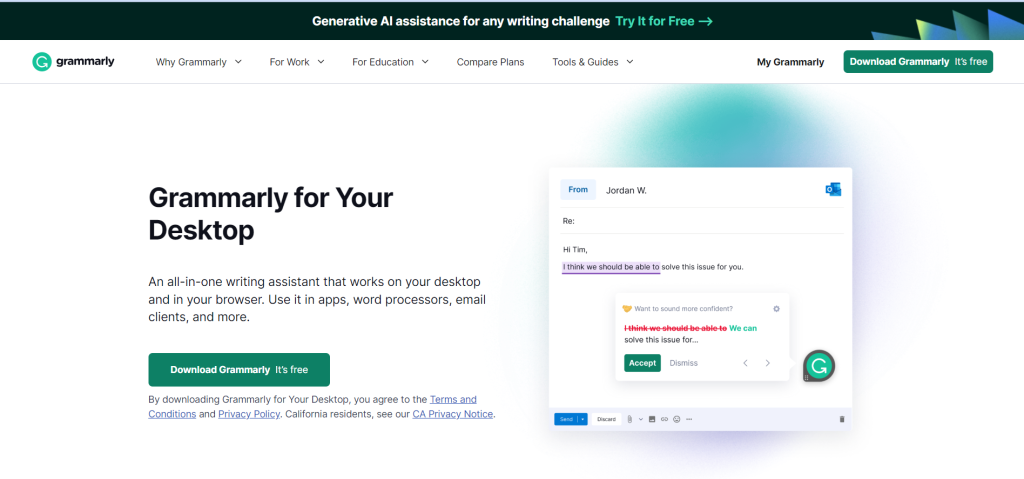
Grammarly is a writing assistant that utilizes AI to offer grammar checks, style suggestions, and plagiarism detection. It integrates seamlessly with various platforms, providing real-time writing assistance.
- USPs: Beyond basic grammar checks, Grammarly offers tone detection, style recommendations, and clarity-focused sentence rewrites, ensuring content is not just correct but also impactful and engaging.
- Pricing: Grammarly offers a free version with basic checks. The Premium version, at $12/month, provides advanced writing feedback and style suggestions.
- How It Helps: For small businesses, Grammarly ensures that all written content, be it emails, reports, or marketing materials, is polished and professional, enhancing communication and brand image.
5. Zoho CRM (Customer Relationship Management)
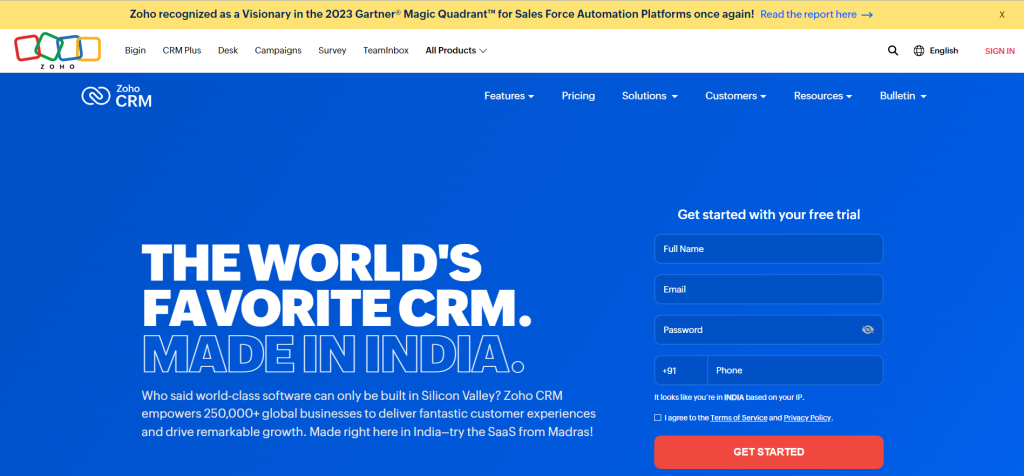
Zoho CRM utilizes AI to provide sales automation, lead scoring, predictive sales analytics, and voice assistants. It helps businesses manage customer relationships, streamline processes, and enhance sales performance.
- USPs: The AI-powered sales assistant, Zia, provides actionable insights, predictions, and recommendations, aiding in more informed decision-making. The platform’s scalability and integration capabilities make it a versatile choice for small businesses.
- Pricing: Pricing starts at $14/user/month, with various plans catering to different business needs.
- How It Helps: Zoho CRM enhances customer engagement, streamlines sales processes, and provides valuable insights, enabling small businesses to nurture leads more effectively and close deals faster.
Final Thoughts
The use of AI has become essential for businesses to stay updated and adapt to current market changes. The tools mentioned above show the practical uses of AI in different areas of business. By using these tools, businesses can work more efficiently and connect better with their customers.
For small businesses, these tools offer a way to handle modern market challenges effectively. This means they can make the most of AI’s benefits and grow in the digital world. Simply put, using AI tools can help small businesses innovate and serve their customers better, leading to steady growth.
Let us know in the comments if this post was helpful.
